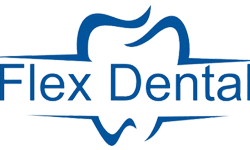Mobile: (813) 999-1092
Email: frontdesk@flex-dental.com
Address:
310 South Dale Mabry Highway STE 120, Tampa, FL 33609
We know it's not always the most exciting appointment on your calendar, but trust us when we say that regular dental exams are essential for maintaining a healthy smile. In this article, we'll walk you through what to expect during a dental exam and provide tips for keeping your pearly whites in tip-top shape between visits. So grab your toothbrush, and let's dive in!
Regular dental exams are like the superhero cape for your oral health. They may not seem glamorous or exciting, but they play a crucial role in preventing dental issues before they become major problems. Think of them as your secret weapon against cavities, gum disease, and other potential oral health concerns.
During these exams, dentists have the opportunity to thoroughly assess the state of your teeth and gums. They can spot any signs of decay or damage that may be lurking beneath the surface. Without regular check-ups, these issues could go unnoticed and escalate into more serious conditions down the road.
Moreover, dental exams allow professionals to catch early warning signs of systemic diseases such as diabetes or even certain types of cancers. Your mouth acts as a window into your overall health, making it all the more important to prioritize these routine visits.
By attending regular dental exams, you're taking proactive steps towards maintaining good oral hygiene habits. Your dentist will provide valuable guidance on proper brushing techniques and offer personalized tips tailored to your specific needs. Plus, they can answer any questions you might have about flossing methods or choosing the right toothpaste for optimal dental care.
During a dental exam, there are several common procedures that you can expect. These procedures are essential for maintaining good oral health and preventing any potential issues from worsening.
Regular dental exams play a vital role in maintaining optimal oral health. By undergoing these common procedures during each visit, you can ensure early detection and prevention of potential problems while keeping your smile bright and healthy!
Maintaining good oral health is crucial for overall well-being. While regular dental exams are important, it's equally essential to take care of your teeth and gums between visits. Here are some tips to help you maintain a healthy smile:
Remember that these tips should complement regular dental check-ups rather than replace them entirely! By taking proactive steps in caring for your oral health between exams, you'll be setting yourself up for a lifetime of healthy smiles!
Regular dental exams are essential for maintaining good oral health and preventing potential problems in the future. By visiting your dentist twice a year, you can catch any issues early on and receive necessary treatments promptly.
Remember that prevention is always better than cure when it comes to dental problems. Regular check-ups not only help keep your smile healthy but also contribute to overall well-being. So don't skip those appointments!
If you have any concerns or questions about what to expect during a dental exam, reach out to our dentist, who will be more than happy to guide you through the process. Schedule an appointment today and take proactive steps towards optimal oral health!

Mobile: (813) 999-1092
Email: frontdesk@flex-dental.com
310 South Dale Mabry Highway STE 120, Tampa, FL 33609